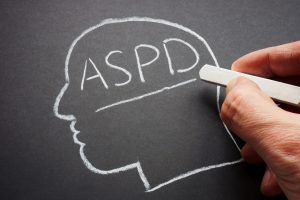 Antisocial personality disorder (ASPD) is a personality disorder characterized by a long-term or chronic pattern of irresponsible, impulsive, or criminal behaviors.
Antisocial personality disorder (ASPD) is a personality disorder characterized by a long-term or chronic pattern of irresponsible, impulsive, or criminal behaviors.
Antisocial personality disorder (ASPD) is estimated to affect 1 to 4% of adults in the United States, and it is more commonly diagnosed in men than in women. The exact cause of ASPD is not fully understood; however, it is believed that factors such as traumatic experiences, genetics, and childhood abuse or neglect may contribute to its development.
People with ASPD often display the following behaviors or signs:
- A lack of guilt or remorse
- Inability to control anger
- Repeatedly breaking the law
- Manipulative behavior
- Aggressive behavior
- Reckless behavior
- Feeling superior to others or more powerful than others
- Not taking responsibility for harmful actions
- Lying
- Stealing
- Fighting or assaulting people
- Difficulty sustaining long-term relationships
- Having problems with substance misuse
- Blaming others for the problems in their lives
ASPD may look different for each person and is on a spectrum, meaning that these behaviors range in severity.
The consequences or complications associated with ASPD can include financial problems, imprisonment, domestic violence, attempting to kill others or suicide, and alcohol and drug misuse.
Diagnosing ASPD is based on medical history, symptoms, and a mental health evaluation. A diagnosis is usually made after the age of 18 by a mental health provider. Treatment may involve medications or cognitive behavioral therapy.
To schedule an appointment with a mental health provider at Flushing Hospital Medical Center, please call (718) 670-5316.
All content of this newsletter is intended for general information purposes only and is not intended or implied to be a substitute for professional medical advice, diagnosis or treatment. Please consult a medical professional before adopting any of the suggestions on this page. You must never disregard professional medical advice or delay seeking medical treatment based upon any content of this newsletter. PROMPTLY CONSULT YOUR PHYSICIAN OR CALL 911 IF YOU BELIEVE YOU HAVE A MEDICAL EMERGENCY.
